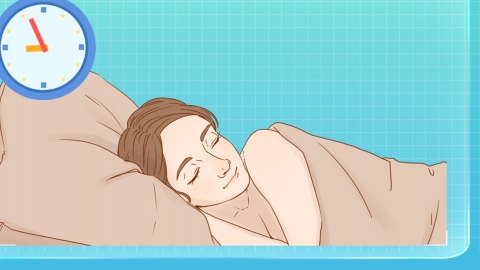Why do I sweat heavily during sleep with anxiety disorder?
Anxiety patients sweating heavily during sleep is generally caused by factors such as autonomic nervous system hyperactivity, uncomfortable sleeping environment, hyperthyroidism, diabetes, pheochromocytoma, etc. If symptoms recur frequently, it is recommended to seek timely medical attention at a正规 hospital. Detailed analysis is as follows:
1. Autonomic Nervous System Hyperactivity
Anxious emotions activate the sympathetic nervous system, leading to overactive sweat gland secretion; emotional fluctuations during sleep can easily trigger sweating. Practice deep breathing or meditation before bedtime to calm emotions, avoid consuming coffee or strong tea, and wear loose, breathable sleepwear.

2. Uncomfortable Sleeping Environment
High bedroom temperature, overly thick bedding, or poor ventilation—combined with impaired body temperature regulation due to anxiety—can lead to night sweats. Adjust room temperature to 22–25°C, switch to lightweight and breathable bedding, and ensure good air circulation in the bedroom.
3. Hyperthyroidism
Excessive thyroid hormone secretion accelerates metabolism and increases sympathetic nervous activity, causing night sweats accompanied by palpitations and hand tremors. Medications such as methimazole tablets, propylthiouracil tablets, and propranolol tablets may be used under medical guidance, with regular monitoring of thyroid function.
4. Diabetes
Blood glucose fluctuations or nocturnal hypoglycemia stimulate the sympathetic nervous system, resulting in sweating, often accompanied by thirst and fatigue. Insulin injection, metformin sustained-release tablets, or glimepiride tablets may be used under doctor's supervision, along with regular diet and blood glucose monitoring.
5. Pheochromocytoma
Tumors secrete catecholamines, causing vasoconstriction and sympathetic nervous system activation, leading to episodic night sweats accompanied by severe headaches. Immediate medical attention is required. Laparoscopic pheochromocytoma resection should be performed, followed by regular postoperative follow-up examinations.
In daily life, maintain a regular sleep schedule and avoid staying up late; learn emotional regulation techniques and seek psychological intervention when necessary; undergo routine physical exams to monitor underlying conditions; choose cotton, breathable bed linens to improve the sleep environment.




